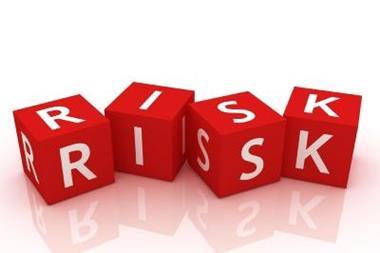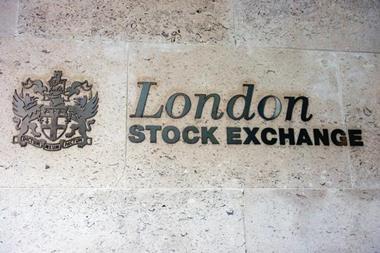If loss of reputation is ranked by risk managers as the most significant risk their company faces, why then is there apparently so little demand for insurance cover? Reputation risk is more worrying than business interruption, product liability, accidents and terrorism, most of which can be insured. Isn't it strange that damage to reputation cannot be protected in the same way?
Reputation is an intangible asset, a combination of expectation and trust, that does not sit easily on the balance sheet. Risk committees tend to focus on identifying tangible risks with a predictable cost impact and occurrence frequency. Reputation is a strategic risk and often evades scrutiny due to its amorphous nature. It does not help that reputation has no individual owner in a boardroom on whom to pin responsibility.
Yet it is vital for investor confidence and trust. In the case of BA, the recent suggestion of price fixing and the suspension of senior executives was enough to hit share price and market capitalisation. The Gate Gourmet fiasco is still fresh in the minds of many travellers and shareholders alike but that was a case of bad judgement. The prospect of price fixing is different; there is a suggestion of unethical behaviour over policy, not operations, and this is a far greater crime in the eyes of both passengers and shareholders. Trust betrayed is rarely fully recovered.
As for the recent problem affecting Cadbury, the prospect of contamination is in itself a concern, but the impression that the firm knew of the problem six months before and took no action is shocking. Despite spending heavily on advertising and PR, the news that first emerged implied Cadbury had been reluctant to recall product and was forced into doing so by the health regulators. Of course it probably is not really that bad, but the public is left to think that Cadbury put profit before safety. The victim of course is trust.
Uninsurable?
So reputation damage occurs when trust is betrayed and both customers and investors vote with their wallets. Why cannot this be insured? There are four basic reasons, none insurmountable but worth noting.
Firstly, reputation damage is difficult to define in terms of 'peril'. What exactly is the damage and how does it manifest itself? For each organisation that might seek to protect its reputation, the constituent parts of it will be significantly different. It is of course those aspects of the business where investor trust is critical - integrity, respect, or safety, for example.
Secondly, reputation damage is difficult to measure or provide evidence of loss. Market capitalisation is quantifiable, but lost future business is more difficult to explain and justify, while damage can be deferred over many years. The fallout from reputation damage can also be far reaching, stretching to stakeholders who are neither customers nor investors. Defining damage and justifying loss is an insurer's prime concern.
Thirdly, reputation risk is difficult to allocate as it is the responsibility of many parties. In this respect it differs from professional indemnity or directors' and officers liability. Insurers understand this type of risk as it relates to individuals whereas reputation risk is shared.
Fourthly, and most critically for insurers, the value of reputation is influenced by those who would insure it. Hence the opportunity exists for a false claim. Referred to as 'moral hazard', it is the major reason why insurers do not go into certain areas, because of the difficulty of policing claims and the fear of encouraging criminality through settlements based on spurious claims.
Having said all this, there is a growing movement for reputation risk analyses, and in the foreseeable future insurance cover will be available. At the moment the industry says that there is no demand, yet corporate clients say there is no product! Something has got to give. If corporations like BA and Cadbury can suffer big reputation hits within one week, there is enough of a peril out there to cause significant damage.
The Centre for Risk Research at Southampton University and my own specialist consultancy are finding more and more organisations keen to measure and manage reputation risk. It cannot be left to manage itself.
Garry Honey is a visiting senior fellow at the Centre for Risk Research in Southampton University and a founder of the reputation risk consultancy Chiron, www.chiron.uknet



















